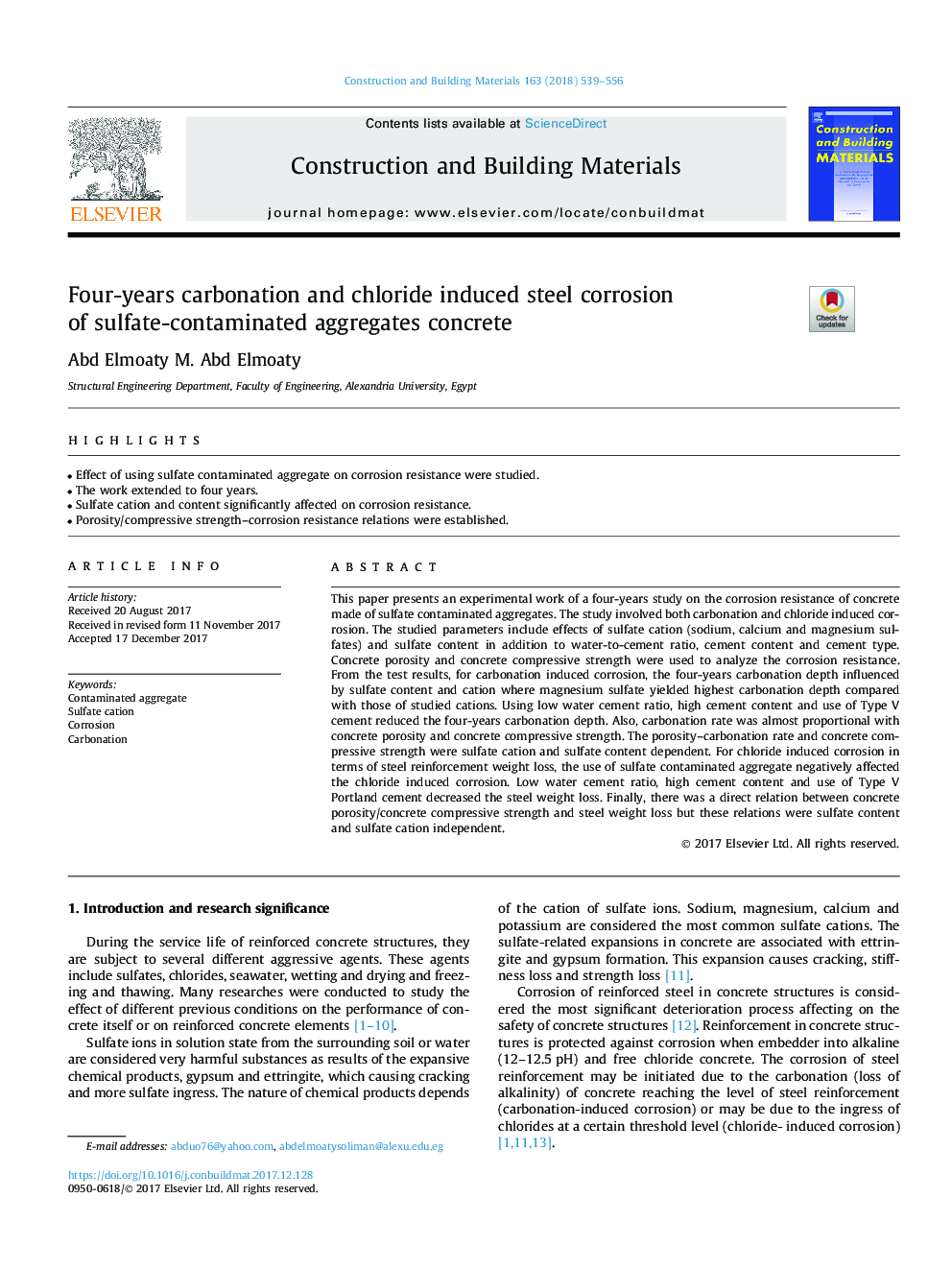| Article ID | Journal | Published Year | Pages | File Type |
|---|---|---|---|---|
| 6716263 | Construction and Building Materials | 2018 | 18 Pages |
Abstract
This paper presents an experimental work of a four-years study on the corrosion resistance of concrete made of sulfate contaminated aggregates. The study involved both carbonation and chloride induced corrosion. The studied parameters include effects of sulfate cation (sodium, calcium and magnesium sulfates) and sulfate content in addition to water-to-cement ratio, cement content and cement type. Concrete porosity and concrete compressive strength were used to analyze the corrosion resistance. From the test results, for carbonation induced corrosion, the four-years carbonation depth influenced by sulfate content and cation where magnesium sulfate yielded highest carbonation depth compared with those of studied cations. Using low water cement ratio, high cement content and use of Type V cement reduced the four-years carbonation depth. Also, carbonation rate was almost proportional with concrete porosity and concrete compressive strength. The porosity-carbonation rate and concrete compressive strength were sulfate cation and sulfate content dependent. For chloride induced corrosion in terms of steel reinforcement weight loss, the use of sulfate contaminated aggregate negatively affected the chloride induced corrosion. Low water cement ratio, high cement content and use of Type V Portland cement decreased the steel weight loss. Finally, there was a direct relation between concrete porosity/concrete compressive strength and steel weight loss but these relations were sulfate content and sulfate cation independent.
Keywords
Related Topics
Physical Sciences and Engineering
Engineering
Civil and Structural Engineering
Authors
Abd Elmoaty M. Abd Elmoaty,
